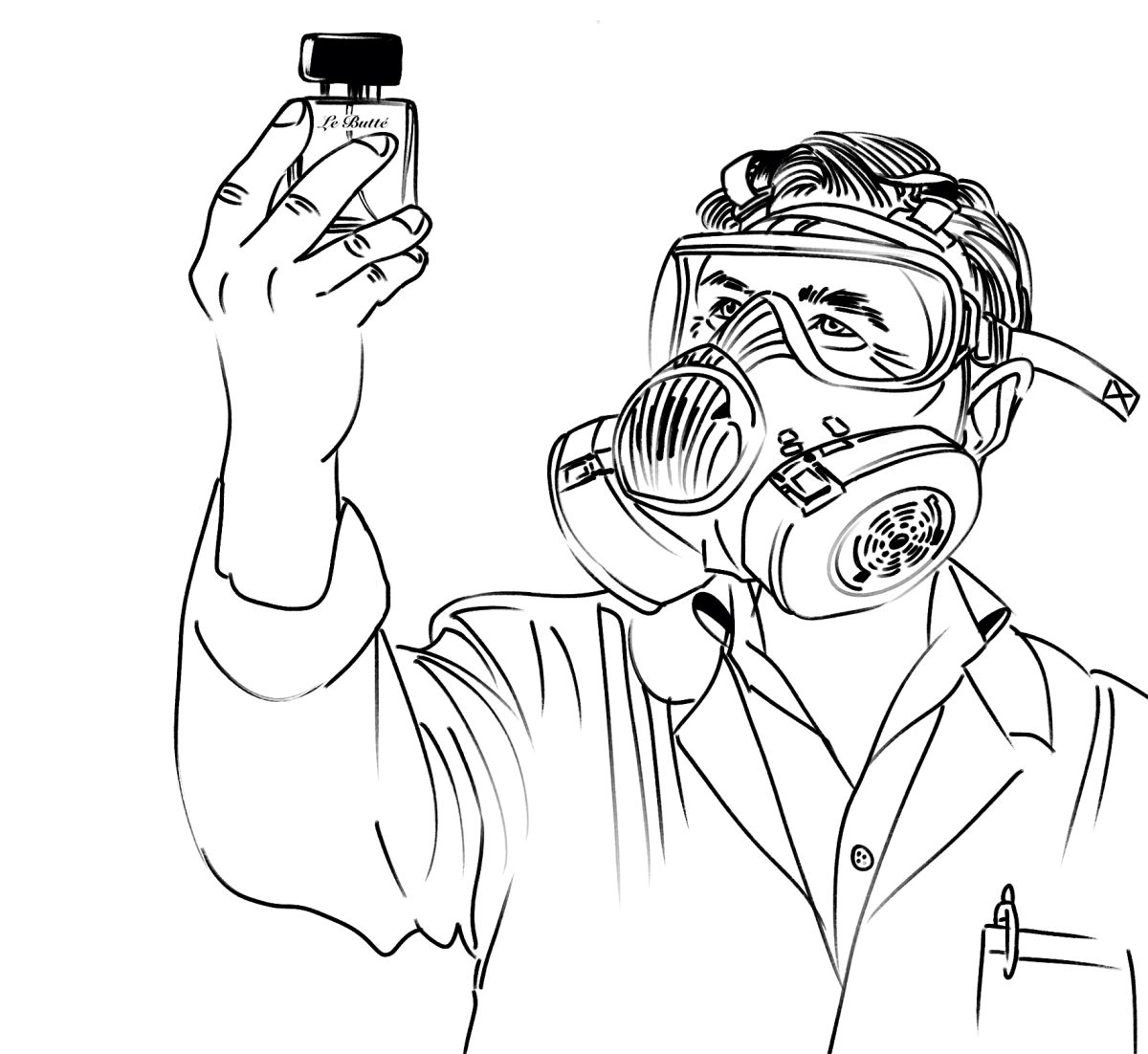As a college student, deciding what to major in can be a daunting task—hell, I didn’t decide on a major until my junior year. Even when you do settle on something, choosing what courses to take can prove challenging, especially when courses are given extremely vague names like “Religion, Politics, Sex & Violence.” It’s a potpourri of separately complex, clickbaity subjects, and throwing the big “S” in there seems a bit desperate. I mean, I’m sure it’s an interesting class, probably right up there with “Pythagoras, Dildos, String Theory & Raspberry Jam.”
Luckily, you can put your academic worries to rest, as UMass Boston has recently announced the addition of its most honest and straightforward department to date: Scentology. For those of you who read that fast, no, this doesn’t have anything to do with reincarnated extraterrestrial spirits, cults or Tom Cruise. Scentology simply refers to the study of smells, and majoring in the subject is probably the easiest route to graduation, only requiring five courses for majors and two for minors. I caught up with the newly appointed department head, François Le Butté, to get a whiff of the goods.
“Scentology is a science of passion, delicate like the dewy aroma of a water lily wafting calmly on a summer’s breeze.” Le Butté played his vocal chords as melodically as a classical harp. “Smells guide us, they bind our world together. They facilitate the complicated threads of human experience we know as reality. Poo poo, you say? No. There are no bad smells, only different smells. Ah, but what is it that Scentologists truly hope to find? What is the meaning of life? What lies at the center of the Universe? Who, what, when, where and why? We believe the answer lies here.” Le Butté lightly prodded the tip of his nose.
While considered an eccentric personality, Le Butté is an experienced and essential figure in the field of Scentology, having found the answer to the age-old question, “How many bad smells does it take to get a good smell?” He used this knowledge to create a successful line of cologne in the ’90s crafted through the combined scents of 5,471 varying animal rumps. As of this semester, he’s teaching three courses: “Scentology 101,” “Scentology 102,” and “Smellosophy: To Stink or Not to Stink,” where he attempts to explore the other age-old question, “How many good smells does it take to get a bad smell?”
Alongside Le Butté, the University welcomes Dr. Loretta Lavender, a highly respected Scentologist and acclaimed field researcher. She’ll be teaching two classes, “Smell Anatomy” and “Life, Death, and the Infinite Odor.” Dr. Lavender’s focus has always been on connecting the makeup of a smell to that of the Universe at large, believing, similarly to Le Butté, that smells hold the key to understanding the meaning of life.
“What is a smell?” asked Dr. Lavender quizzically. “To put it simply, a smell is a concentrated gaseous vapor perceived by our own human senses to evoke a mental response that provides information about said vapor. Just as an atom contains a nucleus and a universe contains a dark center, a smell has a core as well. An ‘eye’ if you will. This semester, I plan to have my students examine the ‘eye smell’ theory in further detail to study the peculiar effect of scent cancellation while standing in a smell’s eye.”
Famously, Dr. Lavender guest starred on an unaired episode of “MythBusters” where they attempted to test her theory that entering and exiting a highly pressurized smell too quickly could lead to one getting the bends. Much to the shock of Adam Savage and Jamie Hyneman—who agreed to have Lavender on as a joke—her theory proved correct. It was a little too correct, to be exact, as a poor unpaid intern had his blood instantly boiled, his eyeballs sucked out of his head and his internal organs splattered across the lab upon running through a cloud of pressurized wet dog smell. Savage and Hyneman have since refused to discuss the incident.
Regardless of Scentology’s past debacles, majoring in the field offers students loads of knowledge and experience that can be applied to a plethora of careers. Companies like Glad, Pampers and Axe are known to house extensive Scentology research teams. Hearing this, it’s no wonder the administration decided it was in their best interest to cut the entire Environmental Sciences department to free up the budget. In their own words, “UMass Boston aims to pave a path to the future, and let’s face it, protecting the environment is a lost cause anyway.”
As of now, there is currently only one student enrolled in a Scentology course; however, top University analysts have projected the number of enrolled students to double each year. That means that in five years, they’ll have an entire classroom’s worth of students enrolled in the program. In 14 years, every UMass Boston student will be a Scentology major. It’s basic mathematics. Of course, the analysts could be wrong, but if that’s the case, the administration is prepared to do whatever it takes to get students into the program, even if that means throwing the word “sex” into every course name.

